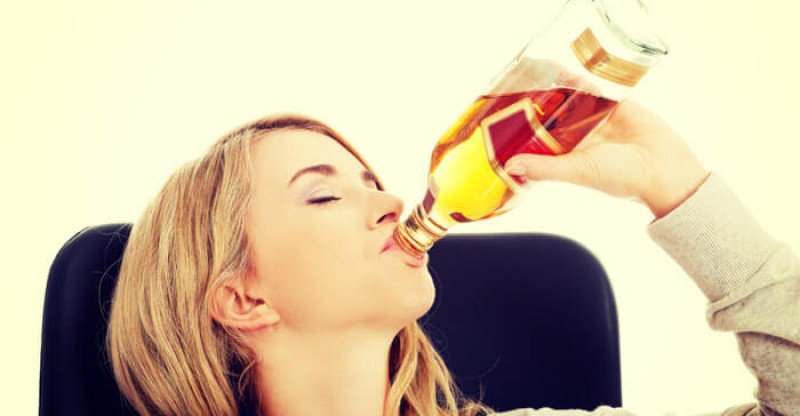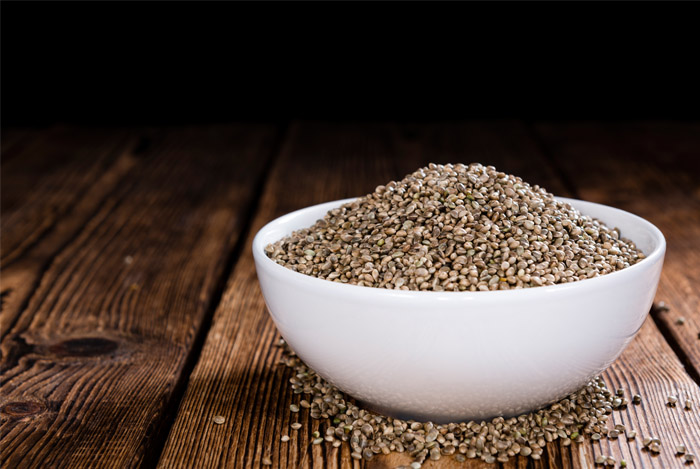Alcohol Addiction: How to Stop Drinking and Start Recovery
Alcohol has been so ingrained in our society that addiction can be difficult to detect.
How can anyone tell whether day-drinking is because of brunch or a deep-seeded problem?
And how do we know when “enough” is too much?
Alcoholism often hides in plain sight because it is a common addiction.
A 2015 Substance Abuse and Mental Health Services Administration (SAMHSA) survey found that nearly 25% of the adult population in the United States engages in binge drinking.
Overcoming alcohol addiction can be challenging, but it’s important to start today.
The longer you live with alcoholism, the more difficult it will be to overcome your addiction.
If you suspect your cravings for alcohol may be turning into an addiction, there are some things you should know.
3 Reasons to Overcome Alcoholism Right Now
The “I’ll stop tomorrow” plan typically doesn’t work well for anyone, and it can be especially harmful to alcoholics.
Before you know it, your body can become so reliant on this substance that it’s difficult to find your way back to normal again.
If you think you have a problem with alcohol, it’s best to seek help immediately.
Every day your body relies on alcohol to function will make it more difficult to recover.
So if you’re thinking you can start tomorrow, you should know these three ugly truths about alcohol recovery.
- Severe Alcoholism May Require a Medical Detox.
Serious alcoholics will experience severe alcohol withdrawal symptoms that can be fatal, but this only affects 10 to 20% of alcoholics.
The duration and severity of your alcohol abuse will likely impact your detoxification symptoms.
The longer and harder you’ve been drinking, the more extreme your detox will be.
- “The Shakes” are a Medical Emergency.
The shakes also referred to as delirium tremens (DTs), usually signal a life-threatening condition that involves sudden mental or nervous system changes.
Those who have been drinking longer and binge drinking are more likely to experience this phenomenon.
- Alcohol Withdrawal Symptoms Can Last for Years.
There are acute withdrawal symptoms that last for three to five days, and then there are secondary withdrawal symptoms that can last much longer.
This recovery stage is called post-acute withdrawal syndrome (PAWS).
People who have been abusing alcohol for longer periods of time have a more difficult time in recovery.
How to Know if You’re Addicted to Alcohol
So how do you know if you have a problem that needs to be addressed?
Identifying alcoholism is easier than you might think.
If you suspect that you have a problem with alcohol, you’re probably drinking enough to warrant some type of change.
Also, if you can answer yes to any of these questions, you should consider quitting alcohol or getting help with your addiction.
- Do you lie about your alcohol consumption?
- Do you drink to relax or feel better?
- Can you truly stop whenever you want (have you tried)?
- Have you ever blacked out from drinking alcohol?
- Has your tolerance increased drastically?
- Does it seem like alcohol is interfering with your relationships?
- Do you experience withdrawal symptoms when you go without alcohol?
How to Take the First Step Towards Overcoming Alcoholism
If you’re at all familiar with the 12-step program, you know that the first step is admitting you have a problem.
Assuming you know you have a problem, the next step is to strengthen your resolve.
Recovery will prove to be a long and bumpy process, and you’ll need to commit yourself entirely to recovery.
Start by weighing the effects that alcohol has had on your life.
Your goal is to come to a logical decision about your future.
In your life, do the pleasures of alcohol consumption outweigh the physical and mental destruction?
Think about what drinking does for you.
This may be the same thing as the reasons why you drink.
- Does alcohol help you forget about problems?
- Do you have fun when you drink?
- Does drinking help you overcome social anxiety?
Next, think about what you are sacrificing to get these benefits.
- Do you feel depressed when you drink?
- Are you ashamed of your drinking habits?
- Is alcohol getting in the way of your personal relationships?
Finally, consider what will happen after you stop drinking.
- Your relationships will likely improve.
- You will be physically healthier.
- You will probably feel stronger emotionally.
This exercise can provide insights to any roadblocks you may experience before they even occur.
Knowing why you drink can help you figure out when you’ll experience the strongest temptation.
Now, ask yourself what you’ll miss most about drinking.
- Will you lose friends if you stop drinking alcohol?
- Will you have to find other ways to deal with problems or soothe anxiety?
- Will you have to become more responsible for your actions?
After some self-reflection, you will have a better understanding of the challenges and opportunities that recovery will bring.
This is a difficult step, but it will help strengthen your resolve to stay sober throughout your journey.
Deciding Whether to Quit or Cut Back
This decision will depend on your level of addiction to alcohol.
If you only drink socially but have trouble knowing when to stop, you may have some success with cutting back and setting firm rules for yourself.
However, if you are an alcoholic, this means you are incapable of controlling your drinking.
In this case, the only option is to quit. If you aren’t sure whether you can stop, you can find out by trying.
Try setting rules for yourself and see if you can stick to them.
Here are some example rules you may want to adopt:
- Set a Daily Limit
This doesn’t mean you get to drink daily, but it defines how much you’ll drink when you do.
For example, you may allow yourself no more than one or two alcoholic beverages in a 24-hour period.
- Keep a Log
Much like you would with food on a diet, keep a log of how many drinks you’ve had.
This is one way to hold yourself accountable. You may be surprised at how the drinks add up.
- Savor Alcohol
Instead of chugging a beer or glass of wine, consider sipping it slowly over time.
You’re less likely to get drunk, and it’ll be easier to limit the number of drinks you have.
- Stop Drinking Alone
Limit the amount of alcohol you keep at home and stop drinking alone.
Alcoholics often drink alone, and they tend to hide their drinking from others.
Drinking alone does not make you an alcoholic, but it’s a habit that could easily lead to alcoholism.
If you have trouble limiting your alcohol consumption, you may have a more serious problem with alcohol.
Cutting back is not an option for you, but you may need help to quit.
Consider attending meetings and/or getting help from a rehabilitation center.
How to Set Recovery Goals
Know that most addicts do not change overnight.
Don’t expect more of yourself than what is realistic.
Think of your recovery as a gradual process where you will take small steps every day.
This may mean cutting back on alcohol before quitting, and that’s perfectly fine.
Instead of thinking of recovery as an overwhelming and unending process, decide which steps you’ll take first.
For example, are you going to cut down on drinking before you quit alcohol altogether?
If so, write down the specifics of that goal. It may look something like this:
“I will only drink alcohol on weekends, and I will limit my consumption to three drinks per night.”
If the ultimate goal is to stop consuming any alcohol, you should also give yourself a deadline.
“By December 1st, I will quit drinking alcohol.”
Announce your goals to family and friends, so they can hold you accountable.
You may even share your reasons for wanting to quit, so they know that this is serious.
How to Handle Withdrawal Symptoms
When you’ve been drinking heavily for some time, you can expect to have some withdrawal symptoms.
The severity of your withdrawal will depend on how long you’ve been drinking, how much you’ve been drinking and whether you have any other health issues.
When the body becomes dependent on alcohol, adjusting to life without alcohol can be physically difficult.
Withdrawal symptoms are your body’s way of adjusting.
They can range from mild to severe and may include:
- Headaches
- Sweating
- Shaking
- Trouble sleeping
- Trouble concentrating
- Anxiety or depression
- Nausea and/or vomiting
- Stomach cramps and/or diarrhea
- Elevated heart rate and blood pressure
These symptoms may begin hours after your last drink and peak in a day or two.
It can be a difficult time, but your symptoms should subside within five days.
You may be able to overcome withdrawal on your own, but you should consider getting help if you have been drinking heavily for many years.
With severe alcoholism, withdrawal can be life-threatening.
If you are experiencing any of the following, get to the emergency room right away:
- Fever
- Severe vomiting
- Hallucinations
- Confusion
- Disorientation
- Seizures or convulsions
- Extreme agitation
Tips for Dealing with Post-Acute Withdrawal Syndrome (PAWS)
The withdrawal symptoms mentioned above are part of the acute stage of withdrawal.
This stage typically ends within two weeks.
In acute withdrawal, your body is overcoming the shock of functioning without alcohol.
In the weeks that follow, your body is still acclimating to its alcohol-free existence and this causes post-acute withdrawal symptoms.
PAWS symptoms can last up to a year.
This prolonged feeling of being unwell can be draining for recovering alcoholics, but it’s important to understand that there will be an end.
Common symptoms of PAWS include:
- Hostility or aggression
- Irritability
- Sensitivity to stress
- Anxiety, panic or fear
- Mood swings
- Depression
- Insomnia
- Forgetfulness
- Exhaustion or fatigue
- Loss of interest in sex
- Trouble concentrating
- Anhedonia (inability to feel pleasure)
The most common PAWs symptoms are psychological, so it’s important for a recovering addict to get ongoing support from a therapist or counselor.
In addition to seeking professional help, you may be able to mitigate symptoms by following these five steps:
- Adopt Healthy Habits
This includes eating right, exercising and getting plenty of sleep.
These things will help your body naturally fight stress and produce endorphins, which will lessen your withdrawal symptoms.
- Build Your Own Support Network
Open up to people you trust about your journey, and know that you have multiple people to talk to when the going gets rough.
- Find New Hobbies
You may find that you have a lot of time on your hands when you stop drinking.
Instead of letting your mind wander to places it shouldn’t, try taking up a healthy new hobby like tennis, drawing or rock climbing.
- Stay in Support Groups
As you’re approaching your first year of sobriety, you may be tempted to ditch the group sessions or one-on-one support.
This is a personal choice, but it’s best to stick with support at least until your body has adjusted and the symptoms of PAWS have subsided.
- Learn New Coping Mechanisms
It’s not just your body that needs to adjust to life without alcohol.
You also need to learn healthier ways to deal with stress and negative feelings.
Adopt healthier ways to deal with stress, such as meditation, exercise or breathing techniques.
How to Handle Cravings
Throughout your recovery, you’ll experience alcohol cravings.
This is completely normal, but you must be prepared to handle them.
Below are some tips for handling cravings:
- Avoid temptation – Whenever possible, avoid going places where you know you’ll be tempted. If alcohol isn’t an option, staying sober is a no-brainer.
- Ride out the urge – Understand that cravings are a natural part of the process, but know that you’re stronger. Acknowledge the craving and let it pass.
- Lean on loved ones – Call someone in your support system to talk you through the craving. Sometimes, speaking your feelings aloud is enough to deflate the craving’s power over you.
Conclusion
Overcoming alcohol addiction is not a quick or easy process, but it is worthwhile.
And remember that the longer you wait to get help, the more difficult your recovery will be.
Start by reaching out to an alcohol counselor today.
FDA Compliance
The information on this website has not been evaluated by the Food & Drug Administration or any other medical body. We do not aim to diagnose, treat, cure or prevent any illness or disease. Information is shared for educational purposes only. You must consult your doctor before acting on any content on this website, especially if you are pregnant, nursing, taking medication, or have a medical condition.
HOW WOULD YOU RATE THIS ARTICLE?






